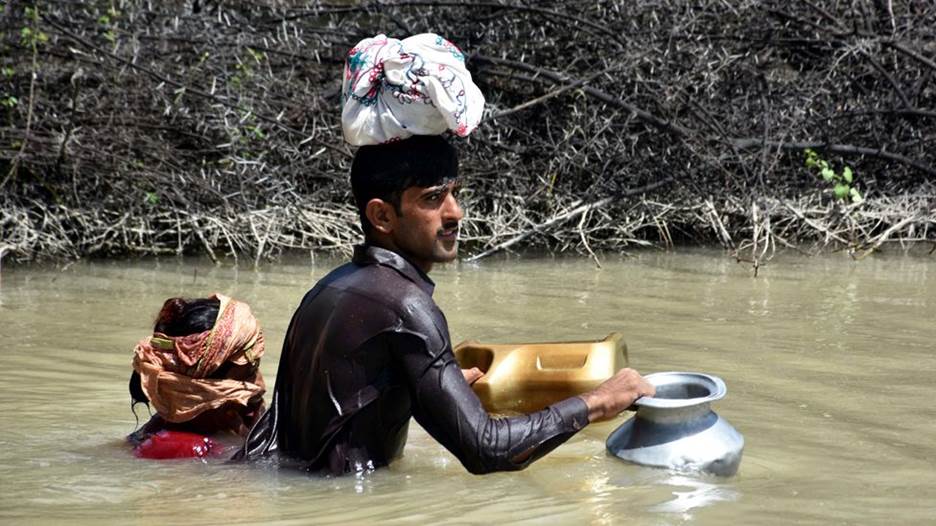
BBC
Pakistan Flooding: Millions Still Homeless, Says Aid Volunteer
By Shehnaz Khan
BBC News
West Midlands
Months after devastating floods in Pakistan, millions remain homeless and need shelter, an aid volunteer says.
Up to 33 million people were affected earlier this year amid widespread devastation in monsoon season.
A UN report said about eight million are still potentially exposed to floods or live close to affected areas.
Imran Hameed, founder of Bearded Broz, in Smethwick, said more help was needed from around the world otherwise "it's only going to get worse".
Pakistan's Prime Minister Shehbaz Sharif has urged the international community to provide "urgent assistance".
"Even today, 20 million victims of the floods need urgent humanitarian assistance," he said at a recent televised broadcast.
Manchester-based charity Human Appeal said floodwaters were still impacting nearly one in 15 people in Pakistan .
Numaan Shahid, special projects coordinator at Human Appeal, which has a local community hub in Birmingham, said those affected were also facing water-borne diseases.
"Cholera is the biggest water-borne disease there right now, with malaria second.
"There is a long-term need for shelter, food packages and medical supplies to give them normality so they can all get back to a normal life.
"The flood water has started to recede, but that doesn't mean it's gone," he added.
Mr Shahid said there was a need for "flood-resistant homes" as temporary shelter would not be heat-protected in the winter months.
"It's still a country that doesn't have a system where water can go," he admitted.
Imran Hameed, founder of Bearded Broz in Smethwick said the winter season and "really heavy fog" had made the situation even worse.
"Cold season is a bad time for these people anyway and if you add water damage, it's a recipe for disaster."
Bearded Broz has been collecting donations and distributing to those in the affected regions but found "aid is still not getting to the right people".
Mr Hameed said volunteers were trying to do what they could, but aid was only reaching about 80% of the communities it needed to.
"People still need more clothing but it's falling on deaf ears."
He said he knew of several people in the local West Midlands area who had travelled directly to the country to provide aid.
"We're finding a lot of individuals have been quitting their jobs to go out there and help people themselves," he added.
"It needs to be an ongoing effort, as it's only going to get worse." - BBC

